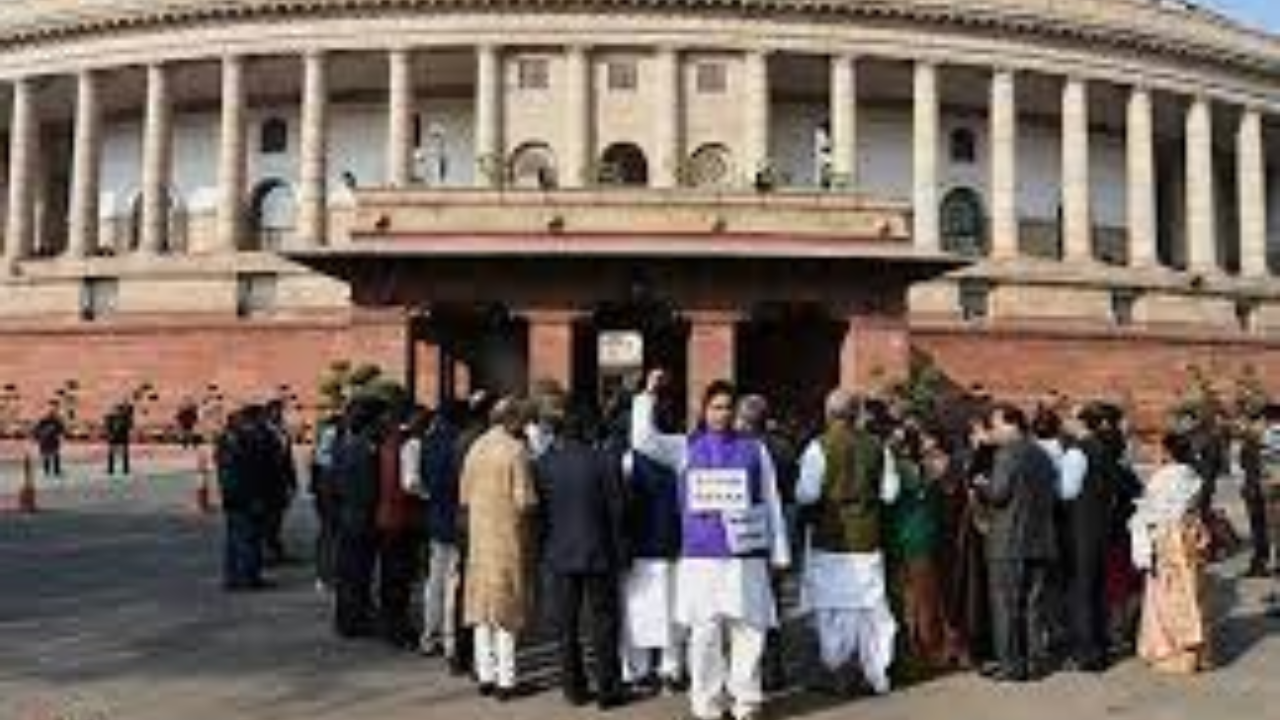Member of Parliament: Qualifications, Responsibility, Age, Salary & More of MP-Rajya Sabha, Lok Sabha
In the Indian constitution, Articles 79 to 122 in part 5 of the constitution deals with the organization, composition, and tenure of the members of parliament.

Introduction to MP
A member of parliament (MP) is the representative of people who are elected by the people of their electoral district.
Parliament has two houses one is an upper house Rajya Sabha which is also known as the second house and the other one is a Lower house which is Lok Sabha which is known as the 1st house.
The member of Parliament of Lok Sabha has more power because they are directly elected by the people through their votes.
Read Also ~ Member of the Legislative Assembly: Know Qualification, Privileges & More
Qualifications of MP
Rajya Sabha
For Rajya Sabha,
- A person should be a citizen of India
- HE /she should be at least 30 years of age.
- A person should make an oath or affirmation.
- According to the Representation of People Act, of 1951, a person should be registered as a voter in the State from which he/she is seeking votes
Lok Sabha
- The minimum age of a person is 25 years, to be eligible for the position of MP.
- A person should be a citizen of India.
- A person should take an oath that a person has true faith and allegiance to the Constitution.
- A person should take an oath that he will uphold the sovereignty and integrity of India.
- A person should have qualifications that may be laid down by the Parliament from time to time, by law, and must be registered as a voter in any one of the constituencies of India.
- A Person who is contesting from the reserved seat must belong to the Scheduled Caste or Scheduled Tribe Category.
Oath:
- A member of Parliament should take an oath that he will bear true faith and allegiance to the Constitution of India.
Disqualifications of MP
The disqualification process can be initiated on several grounds.
Constitutional Basis
- If an MP holds any office of profit under the Union or state government.
- If he /she is of unsound mind.
- If he/she is an undischarged insolvent.
- If he /she is not a citizen of India.
- If the MP is disqualified under any law made by Parliament.
Read Also ~ Jayden Reed Injury Update After Clash with Vikings
Representative Act of People’s Act, 1951
- If a person is found guilty of corruption.
- If a person is convicted for any offense resulting in imprisonment, under preventive detention law.
- If a person has been dismissed from government service for disloyalty.
- If a person is convicted of the offense of bribery.
- If a person is punished for social crimes such as untouchability and sati.
Functions of MP
- They are performing a legislative function that is law-making for the governance of the country.
- The cabinet is the executive and is responsible to parliament and maintains accountability.
- The members of parliament have financial powers also, that no tax can be levied without permission from parliament.
- They have the power to amend the Constitution with the support of the required majority so that the Constitution remains a living document.
Read Also ~ Urmila Matondkar: Biography, Career, Age, Boyfriend & Family Life
